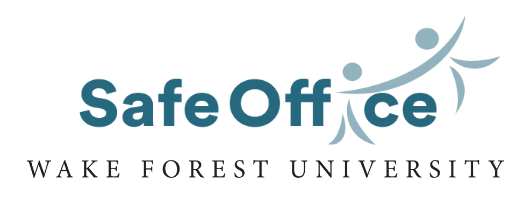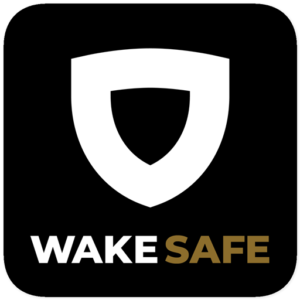Sexual Assault
As a general term, Sexual Assault is a type of sexual violence and sexual harassment which includes any sexual act or sexual contact (direct or indirect) directed against another person, without the consent of the person, including instances where the person is incapable or unable to freely give consent. Sexual Assault can occur between individuals of the same or different sexes and/or genders. Sexual Assault occurs through force, which can be on a spectrum of intensity and can include the use of verbal, physical or emotional pressure or manipulation, substances, threats, weapons, coercion and/or the use of alcohol or other drugs. Types of sexual assault can include rape, sodomy, sexual assault with an object, fondling, incest, statutory rape, voyeurism, and exhibitionism.
What should I do if I have been sexually assaulted?
If you have been sexually assaulted, you may be experiencing many different feelings including shock, anger, sadness, disbelief, and confusion. You may also be experiencing guilt, shame, or worry that something you did caused the assault. Please know the assault was not your fault under any circumstances, and you did not ask or deserve to be assaulted. You are the only one allowed to make choices for your body. Remember that you are not alone in dealing with the assault, and many resources are available to help. Keep scrolling to read more about steps to take after an assault.

If you are in imminent physical or medical danger, call 911 or University Police at 336-758-5911
If you are not in imminent physical or medical danger, you can Start with Safe – call us 24/7 at 336-758-5285, email us at safe@wfu.edu, or walk-in to our office during business hours for a crisis appointment Monday – Friday, 8:30a-5p.
If you are not in imminent physical or medical danger and are in the community or unable to access the Safe Office, contact Family Services of Forsyth County 24/7 at 336-723-8125.
You may elect to share what has happened with a safe family member or friend first, or you may find it easier to talk to a trained advocate or licensed mental health professional who specializes in interpersonal violence. Remember Wake Forest has a variety of confidential resources you can access for help and support. If you prefer to start with a hotline, helpline, community, or national resource, those are available too.
A safe place might be getting to trusted supports such as friends, faculty, RAs, or other campus staff. A safe place could also be getting to a place where other people could help, such as a more public area where a bystander could assist you, or departments on campus such as the Safe Office, Deacon Health, the University Counseling Center, or University Police.
The Wake Safe App has great features including:
- Social escape: the app will call you, allowing you to look like you’re getting an important call and need to leave
- WFU police safety escorts
- Mobile Blue Light: this function will send your device’ location services capabilities to the WFU Police Department and initiate a call to dispatch
- The ability to call 911, WFU police, or initiate a chat with WFU police
Sexual assaults very often cause physical injury in addition to psychological and emotional injury. Seeking medical care quickly after an assault can help protect your physical health, collect forensic evidence if you are considering filing a report, pressing legal charges, and/or filing judicial charges with the University at any time.
Common recommended medical care includes:
- Screening and prevention for STIs/STDs and treatment if screening indicates the presence of infection
- Pregnancy testing and/or emergency contraception
- Screening and care for physical injuries sustained during an assault
- CT scan or CT scan with contrast to identify any internal injuries sustained by choking
- Blood and urine screening in the case of suspected drug-facilitated sexual assault
- Forensic SANE (Sexual Assault Nurse Examiner) exam to collect evidence of a suspected or known sexual assault. If you think you might want to complete a SANE exam, it’s important to try to have the exam completed in the first 72 hours after an assault.
Where to go for physical healthcare?
- On-campus: Deacon Health
- Off-campus:
- Emergency room care & SANE Exams:
- STI/STD testing & pregnancy testing only
You may report to law enforcement and/or to Wake Forest’s Title IX Office, but you don’t have to — it’s your choice. Criminal conduct can be reported to law enforcement and policy violations to the University. The University does not prosecute crimes (law enforcement does that). Some conduct is both a crime and University policy violation (for example, sexual assault) and you have the choice to report to law enforcement and/or the University in those cases. You may also choose to report to neither and instead seek confidential assistance.
You may be hesitant to report a sexual assault because you or your friends were using alcohol or drugs around the time of the assault. Wake Forest University considers sexual assault cases to be of paramount importance and works to avoid alcohol charges for victims, witnesses and students helping a victim of sexual assault.
You can receive medical treatment through Deacon Health and/or the hospital without reporting.
Safe Office Counselor/Advocates can help you understand your rights and options when it comes to reporting, and accompany you to any follow up appointments, informational sessions, and/or meetings for support. You don’t have to be on this journey alone – we are your confidential resource on campus to help guide you through this journey.
You can report a crime to Wake Forest University Police Department at 336-758-5591 or make a report online (non-confidential): University Police Reporting Options
You can make a report online to the Title IX Office (non-confidential): Discrimination, Harassment, Title IX, and Retaliation Report Form
We always encourage survivors to seek support for any emotional or psychological impacts of a stressful or traumatic experience. Counseling is shown to reduce future impacts and promote resilience and coping. Free and confidential crisis intervention, support, and advocacy are available on campus:
The University Counseling Center
Sports Psychology *available to NCAA rostered student-athletes

Need to leave the website quickly?
Safe Office
Need immediate assistance?
24/7 Confidential Support Line
Have a non-urgent question?
Visit Us!
Wake Safe App

The Wake Forest University’s Sexual Misconduct Policy and Grievance Procedures more specifically defines Sexual Assault as “any sexual act directed against another person, without the consent of the person, including instances where the person is incapable of giving consent. Sexual Assault can occur between individuals of the same or different sexes and/or genders.
Click for definitions of different categories of sexual assault
Rape
The carnal knowledge of a person, without the consent of the victim, including instances where the person is incapable of giving consent because of their age or because of their temporary or permanent mental or physical incapacity.
Sodomy
Oral or anal sexual intercourse with another person, without the consent of the person, including instances where the person is incapable of giving consent because of their age or because of their temporary or permanent mental or physical incapacity.
Sexual Assault with an Object
To use an object or instrument to unlawfully penetrate, however slightly, the genital or anal opening of the body of a person, without the consent of the person, including instances where the victim is incapable of giving consent because of their age or because of their temporary or permanent mental or physical incapacity.
Fondling
The touching of the private body parts of a person for the purpose of sexual gratification, without the consent of the victim, including instances where the victim is incapable of giving consent because of their age or because of their temporary or permanent mental or physical incapacity.
Incest
Non-forcible Sexual intercourse between persons who are related to each other within the degrees wherein marriage is prohibited by law.
Statutory Rape
Non-forcible sexual intercourse with a person who is under the statutory age of consent.
